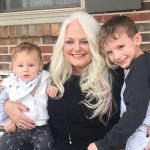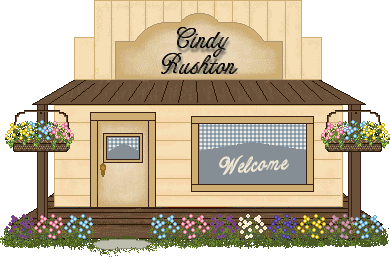 Homeschooling? Heard about narration, but wonder what it is and how to do it? Been intrigued, but what you have heard just sounds a bit too tough—like another thing to do in your busy day? Well, my dear friend, narration is as easy as A, B, C! It is as easy as talking! When you see how easy and natural narration can be, I think you will be hooked! Want to give it a chance? Here is how…
Homeschooling? Heard about narration, but wonder what it is and how to do it? Been intrigued, but what you have heard just sounds a bit too tough—like another thing to do in your busy day? Well, my dear friend, narration is as easy as A, B, C! It is as easy as talking! When you see how easy and natural narration can be, I think you will be hooked! Want to give it a chance? Here is how…
Read a book to your children.
Yes, why not grab a neat book today and cuddle up with your children for a nice time of reading aloud. There is something about reading aloud to anyone of any age that just nurtures and makes sweet memories. Learning becomes easy. If there is one thing that can bring life and closer relationships into the home, it is reading.
In our home, we love biographies. We just love digging into the lives of great people! Right now, we are reading biographies produced by Youth with a Mission (YWAM Publishing). They are just THE BEST! Through the years, we have gone back in time with those that leave their legacy with us through the life-stories. Why not pull out a biography today?
Of course, biographies are not the only great books for narrations. My son has always been a “fact” kid. He loved digging out information from non-fiction books, magazines, and research materials. He spent hours digging out information and then just poured out the information in his own “literary” style through oral narration (talking!). It was so natural! My only job as a teacher was to LISTEN! Can’t beat that!
Grab a great book, cuddle up, and read!
Let them retell the story to you.
That brings me to the next point…listen to them retell what you read to them. Don’t make it stiff or “school-y.” Make it a relationship thing!
Listen to them share what THEY are truly “getting” from the selection. Listen to what they deem as important. Goodness, all of those wonderful teachers manuals out there dig into questions that someone else deems as important. Many of those are written by adults who have lost the wonder of learning that is still locked up in our children. Their questions are not about the most interesting things in a book or material. In fact, many miss the whole point in many books or studies. They simply cannot see the great mind-food that is there!
So, instead of feeling as though your children need to learn a certain amount of information, sit back and enjoy just listening to all that they are extracting from the material. It will change YOUR life!
Just listening will help you to know that they are truly absorbing from their studies. You will never see education the same again! It will feed YOUR mind too!
Want to Write It Down? Sure! But first…
There is something in us from our school days that feels as though we need to have info recorded for education to happen. That is fine. Of course, before I tell you how, I want to caution about this. I simply LOVE paper trails. I love notebooks. I love to see LOTS of “proof” for what I do with our time. This is something I had to learn about myself as I began homeschooling. Without quite a bit of paper, I just do not always “see” what we have accomplished. If I cannot see it, I battle with feeling as though we are doing enough. Make sense? Well, you have to know this in order to understand that this is one of the reasons that we began notebooking and found notebooking to be such a blessing for our home. With notebooking, we could SEE what was really being accomplished. It helped me to relax and enjoy learning with my children. Now, with that said, all things that we do must be used as tools. We cannot let anything be set up above ministering to the hearts of our children. If we do, then it will burn them out…and most likely, it will cause us to burn out too.
Ok…with that said, this is one of my greatest concerns with narrations. After years of using narration, copywork, dictation, writing books, and making lapbooks, I see the danger in feeling that everything MUST be written down. One of the best perks about narration is that it CAN be entirely oral. There are so many fruits with oral narration—teaching our children how to express their thoughts, how to present what they are learning, how to share with others what they find important, on and on. It is a wonderful preparation for public speaking. They need all of those skills throughout their education. But, there is even more to education.
Even after they become great writers, keep in mind that they will always need to talk. Narration encourages us to develop a relationship with our children early—really listening to them. In the teen years, this is one of the most vital needs for our relationship with them. We need to keep them talking to us. So, as you move through the process of writing, don’t lose your children in the process. Move slow and steady. Keep them talking and sharing. Don’t sacrifice them on the “high places” of education.
Ok…Now…Let’s Write It Down!
You have read the book. Now, what? Either JUST listen or you can let them narrate the story while you take down the story with dictation on paper to keep in a notebook. I really want to stress that writing down narrations is a great way to train your young writers, but it can be very dangerous. Our children can share SO much more from very young ages when they share verbally. Don’t begin this step too early OR make it every day.
How do you know that you are ready? Well, let me share about what happened with my daughter one day.
Elisabeth was always so adorable when narrating. She usually shared twice as much as we would read! Actually, both of my children were like that—humm…could it be having a mom who is a writer? Ha! No, I really think that when we listen to our children and WANT to know what they know, they will all share verbosely.
Well, one day, we were reading while we were traveling. Normally, we would read while dad was at work, then when he would come in from work, the children would be about to bust to share with him every single detail about what we had read or learned during the day. He was a great sport in listening to them go on and on about what we had studied. But, until this day, he had never heard them listen to a story and then make it their own and share it back. I thought it would really excite him to see how much they grasp from their studies. Well, the lesson that day was not for anyone else, but me!
We read the book. It was such a great story. Then, I asked Elisabeth to retell it for Daddy. She had a perplexed look on her face and then asked, “But, Mom, didn’t he just listen?” This was going to get good here… I told her that Daddy HAD listened, but that I wanted for him to see how much she could remember and how neat she shared it back. Of course, my children have never “performed” in front of others like I wanted—it began when they were little and would not say those new words for anyone but me…or walk for anyone but me…or show ANY signs of genius for anyone but me! I always felt that they were trying to make me look like a nut in front of the world—actually, that is what I get for being so very excessively proud of my children! Ha!
Long story, short here…Elisabeth and I had a clash that day. It simply did not make any sense to her that she tell Daddy what she had learned when he could hear it at the same time as her. God whispered to my heart to just drop it that day. I was aggravated with her so much! Of course, God had a treat in store for me!
It was only about a week later. My husband was off work that day. They wanted to go to the park for lunch and to try out their metal detectors. I took my lawn chair and computer to enjoy writing outside. While we were there, Elisabeth ran up to me and asked me how it was going. She loved to hear me tell her what I was working on—in her mind, it was “my schoolwork” that I worked on. I told her what I was doing—working on my Homeschooling The Easy Way Magazine. She asked me if she could do a narration for me—on the same book she would not narrate the week before. Something in me wanted to choke her—in a non-abusive way, of course! Ha! (Why, oh why don’t they do their “tricks” when you want them too?) God had a treat for me!
She began to dictate her narration to me as normal—she would dictate to me, holding her thoughts bit-by-bit until I typed it in for her. By the way, this is SUPER training for the young writer. It helps them to learn how to keep their thoughts in mind while writing down the thoughts. They have to learn this skill before they can become great writers. Of course, there is so much to learn when learning to write—how to manually write, how to spell, how to set up writing, how to punctuate. All of those things are best learned by Copywork through the years. Copywork works great alongside of Narration. They need to be learned parallel. Students are not ready for written narration until they can copy at least ¾ of a page of Copywork easily and effortlessly. Another thing that they really need to know well before beginning to write their own narrations is how to keep their thoughts while writing. This is best learned by learning how to dictate their narrations while mom or dad write them down.
Back to my story…She began the typical process of dictating her narration to me while I typed it into the computer. It was beautiful. The process was the same as so many other days. But, as she asked me to read back over it to let her “see how it sounded,” she had the “light-bulb” go on! She declared to me, “OH! Mommy! That sounds like the book! It is better than the book!” Yes! That was where we wanted to be. We want for our children to get the idea that THEY TOO can be a writer. We want for them to know that their words can be powerful too. When they get here, then they are able to move into even more written narration and their own original composition. They will be great writers!
Wondering how much should be written? Well, I found that I personally got very weary helping them write down narrations. We decided that we would not do this with EVERY book we read. We just read too much material. It was too artificial to have a written narration on everything that we read. It’s perfectly OK to just listen to them as they share oral narrations along the way. In our home, we only use written narration as a tool to train our children to compose on their own or to write easy homemade books. This keeps it fresh and fun, but never artificial!
Using Narrations as Copywork
Before we move on, one thing that we enjoyed doing during the process of training our young writers was to use our narrations for copywork. When they narrated to me, I took the narration down by dictation. Then, I re-copied the narration for them to use as Copywork assignments or I typed them into the computer for a printed copy of the narration for their notebooks.
This worked great for my children. Usually we would sit down for me to take down their narration and I would set it up for them to use as Copywork selections over a period of several days (their narrations were so long). These made nice “stories” for their notebooks and mini-books. Plus, it trained them to copy longer and longer passages. This was perfect training to help them stretch into writing more and more. In addition, this made it easy for them to become accustomed to getting those narrations on paper. Eventually, they no longer needed for me to take down their dictation, they could hold their thoughts until they could get it all on paper. It was amazing to watch the process. Since we allowed it to happen naturally, they never decreased the amount of material that they narrated. They naturally had nice, long, descriptive writing—the easy way!
So…What Now? In High School?
Now, as our children have grown up, they continue to use narration on a daily basis. What does it look like? It looks like real writing today!
You see, nothing is new under the sun. All writing is a form of narration. All speaking is a form of narration. We are retelling what we have learned. Sure, much of what we learn comes from a variety of sources—books, people, real life, personal experiences, etc. As I share this article, I am retelling things I have learned by reading, by experience, by learning from my children, and by God’s leadership in my life. The same happens with our children too.
As they grow into the high school years, they begin to research areas that need to be learned for a complete education. They research areas of study that they want to pursue for their professions and for marriage and parenting. They can use these skills for that education. In fact, if they haven’t had a good background in narration, this is a MUST for the high school student. They need to know how to read material, make it their own, and share it back in an articulate manner.
These are the years that they can research topics deeply, decide what they think is interesting and share that information in research papers, articles, homemade books, or very deeply detailed narrations. Of course, one of my favorite methods for High School students to use narration is by just “talking” with them. We have had incredible discussions based upon what my children have been reading and studying through the years. We have kept the communication lines open by talking, discussing, debating, and problem solving ideas from books and studies. Completely priceless!
So…What About Narration?
Narration is one of those old-paths in education that has been around from the beginning of time. It is the method that God used to preserve His Word. It is the method He instructed parents to use to teach their children about Himself. It has been used all throughout history to teach, to learn, to share. Narration is in REAL LIFE…it happens naturally as you go along the way, talking with one another about life and what is being learned. What could be a more effective way to teach our children? A sure-fire method. A GREAT education. Sweet memories. Relationships. Plus! It is just that easy! So, why not dig in today???
Happy Homeschooling!
Cindy







